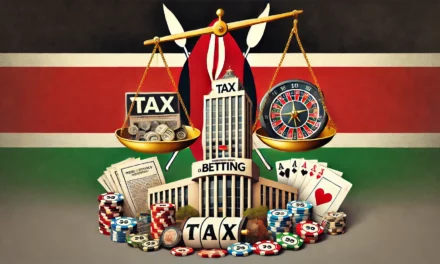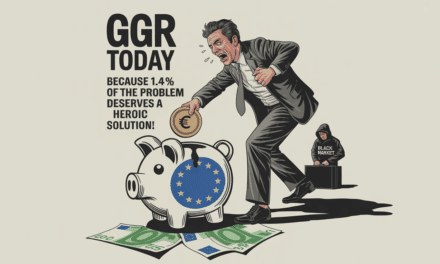The iGaming industry loves to pat itself on the back for “integrity initiatives,” but let’s cut the fluff: match-fixing is spiking, and the system meant to stop it is a leakyespinasse. iGamingExpress’ Sports Week survey, featuring heavyweights like Francesco Baranca, Chris Kronow Rasmussen, and Shaun Mumford, lays bare a brutal truth—match-fixing isn’t just a problem; it’s a metastasizing cancer. The system is broken, riddled with loopholes, and the bad guys are running circles around it. Here’s the unfiltered breakdown of why the industry’s defenses are crumbling and what it’ll take to stop the rot.
The Problem: Match-Fixing Is Exploding
Match-fixing isn’t some shadowy conspiracy- it’s a global epidemic. Francesco Baranca, an integrity expert with his ear to the ground, doesn’t mince words: cases are surging, especially in lower-tier leagues, youth competitions, and women’s sports. Why? The betting market’s gone berserk. From obscure South American divisions to India’s amateur football, bookmakers now offer odds on everything. More matches, more opportunities for fixers to slip through the cracks.
Chris Kronow Rasmussen, DK Advisense’s financial crime guru, backs this up. Open-source data shows a spike in suspicious events, and that’s just the tip of the iceberg. Fixers are smart- they spread bets across multiple games, using doubles and triples to mask dodgy odds movements. Bookmakers’ detection systems? Often too slow or too weak to catch them. Shaun Mumford from the Malta Gaming Authority adds a twist: reported cases are up, but is that because manipulation’s rising or because detection’s improving? Either way, the numbers aren’t pretty.
This isn’t ancient history like rigged Olympic chariot races – it’s a modern hustle fueled by encrypted apps, global betting networks, and a market that’s outgrown its guardrails. The data’s clear: the more betting options, the dirtier the game.
Why the System’s a Mess
The anti-match-fixing framework is a patchwork of half-measures, and the experts don’t sugarcoat it. Baranca calls out the core issue: conflicts of interest, ignorance, and apathy. Bookmakers, sports federations, and regulators all claim to be victims, but they’re complicit. Operators are too timid to report suspicions, federations lack the know-how, and legislation? Mostly toothless.
Rasmussen points to the Hoyzer scandal of 2005 as a wake-up call that nobody answered. Two decades later, the betting market’s a global Wild West—licensed and unlicensed operators, murky data providers, and cross-border schemes that laugh at local cops. Investigations often nab low-hanging fruit like players while the puppet masters sip cocktails in the shadows. Mumford highlights another kicker: in some countries, match-fixing isn’t even a crime, so good luck prosecuting.
The kicker? Everyone’s penny-pinching. Integrity’s seen as a cost, not a necessity. Bookmakers fuel the problem by offering bets on youth games and semi-pro leagues, then act shocked when fixers pounce. It’s like leaving your car unlocked in a bad neighborhood and crying when it’s stolen.
The Deep Rot: Systemic Failures
This isn’t about a few bad apples—it’s a structural dumpster fire. Let’s break it down:
-
Fragmented Regulation: The global betting market’s a regulatory kaleidoscope. Licensed operators report suspicious bets (sometimes); unlicensed ones don’t bother. Data’s incomplete, like trying to solve a puzzle with half the pieces missing.
-
Detection Gaps: Odds-monitoring tech isn’t keeping up. Fixers exploit low-profile matches where scrutiny’s light, and bookmakers’ algorithms often miss subtle bet patterns. Real-time suspension of dodgy markets? Barely a thing.
-
Institutional Apathy: Sports federations are clueless about betting risks, and many treat integrity as a PR checkbox. Operators hesitate to flag issues, fearing bad press or lost revenue. Regulators, meanwhile, are stretched thin.
-
Legal Limbo: Cross-border fixing schemes are a jurisdictional nightmare. Who investigates a match in Brazil, refereed by a European, with bets placed in Asia? Local police can’t handle it, and international coordination’s a pipe dream.
-
Incentive Misalignment: Organizers of small-time competitions get peanuts for data rights, so they don’t care about integrity. Bookmakers profit from bloated markets, so why shrink them? Everyone’s playing for their own wallet.
Fixes That Might Actually Work
Enough whining—here’s what the experts say could turn the tide. Spoiler: it’s not more press releases.
-
Mandatory Reporting: Rasmussen pushes for Suspicious Activity Reports (SARs), like in anti-money laundering. Operators and data providers should be legally required to flag weird odds with context, giving authorities a full picture. No more “we didn’t notice” excuses.
-
Slim Down Markets: Baranca’s blunt- slash betting on youth, women’s, and semi-pro games. Fewer targets, fewer fixes. It’s basic risk management, but bookmakers won’t like losing revenue.
-
Real-Time Action: Anomalous odds? Suspend the market instantly. Baranca says this is non-negotiable. Waiting hours—or days—for manual reviews is like locking the barn after the horse is in Macau.
-
Follow the Money: Rasmussen wants authorities, not operators, leading investigations. Think Europol or a beefed-up European Anti-Money Laundering Authority (AMLA) with a match-fixing mandate. Go after the kingpins, not just the pawns.
-
Educate the Ecosystem: Athletes, coaches, and refs need crash courses on spotting and rejecting fixers. Mumford and Rasmussen agree—ignorance is a vulnerability. Standardize reporting across sports bodies so no one’s left guessing.
-
Data Rights Reform: Baranca’s big idea-pay event organizers properly for betting data rights. Give them skin in the game, and they’ll care about integrity.
-
Cross-Sector Collabs: Mumford’s all about communication. Operators, regulators, sports bodies, and cops need tight data-sharing agreements and MoUs. Malta’s doing it; others should follow. Best practices, not cookie-cutter rules, are the way forward.
The Stakes: Why This Matters
Match-fixing isn’t just about a few rigged games-it’s a trust-killer. Fans lose faith, sponsors bolt, and legitimate operators get squeezed by black-market bookies. The iGaming industry’s projected to hit $153 billion by 2030, but that’s chump change if nobody trusts the product. Worse, unchecked fixing fuels organized crime, from cartels to crypto scammers. Ignore this, and the whole ecosystem rots.
Better Collective’s Ligavip launch in Brazil, covered elsewhere, shows how fast markets like LatAm are growing. But without ironclad integrity, these shiny new platforms are just fresh meat for fixers. The industry can’t keep kicking this can down the road.
The Verdict: Time to Grow a Spine
The iGaming industry’s anti-match-fixing system isn’t just flawed- it’s a liability. Baranca, Rasmussen, and Mumford don’t pull punches: conflicts of interest, shoddy detection, and spineless stakeholders are letting fixers run rampant. The solutions-mandatory reporting, leaner markets, real-time suspensions, and global coordination-aren’t rocket science, but they need courage and cash. Right now, the industry’s short on both.
This isn’t a problem you fix with a new app or a slick campaign. It’s about rewiring incentives, closing loopholes, and treating integrity like the lifeblood it is. If the industry doesn’t step up, match-fixing won’t just grow – it’ll own the game.





